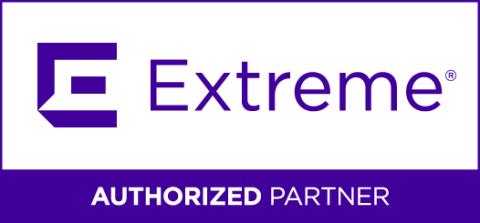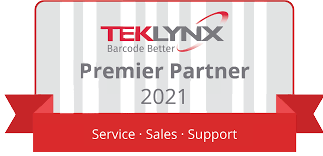
6 Effective Strategies for Modernizing your Supply Chain
Supply chain management has come a long way from its traditional roots. In today’s dynamic and interconnected world, it has evolved into a complex and mission-critical discipline that requires innovative strategies and solutions to stay competitive. Gone are the days of static, linear supply chains; instead, modern supply chains are dynamic, global, and subject to a myriad of challenges. In this blog, we’ll delve into the best modern strategies and solutions for supply chain management, providing detailed insights into how organizations can thrive in this ever-evolving landscape.
In this article:
-
Data-Driven Decision Making
-
Supply Chain Visibility Solutions
-
Demand Forecasting and Planning
-
Sustainable Supply Chains
-
Supply Chain Collaboration
-
Resilience and Risk Mitigation
Key Takeaways:
-
Data-Driven Decision Making: In today’s digital era, data is the backbone of effective supply chain management. Advanced analytics and AI-driven tools enable organizations to harness the power of data for accurate demand forecasting, inventory optimization, and real-time decision-making. By leveraging data insights, businesses can enhance efficiency, reduce costs, and stay competitive in a rapidly evolving marketplace.
-
Supply Chain Visibility and Collaboration: Achieving real-time visibility across the entire supply chain and fostering collaborative partnerships with stakeholders are pivotal for success. Modern technologies like IoT, RFID, and blockchain enable transparency, streamline operations, and build trust among partners. This visibility and collaboration not only improve efficiency but also help organizations respond quickly to disruptions and market changes.
-
Sustainability and Resilience: Sustainability is no longer an option but a strategic imperative. Modern supply chain strategies focus on reducing environmental footprints, meeting sustainability goals, and complying with regulations. Additionally, building resilience against unforeseen disruptions, such as natural disasters or supply chain interruptions, is essential for maintaining business continuity and safeguarding supply chain integrity.
1. Data-Driven Decision Making: The Power of Analytics
In the digital age, data reigns supreme, and supply chain management is no exception. The ability to collect, analyze, and act upon data insights is paramount. Advanced analytics and machine learning algorithms have emerged as indispensable tools. They enable organizations to predict demand patterns, optimize inventory levels, and identify areas for process improvement. Real-time data analytics further enhance supply chain agility by allowing quick responses to market changes and better risk management. By harnessing the power of data, organizations can make informed decisions that reduce costs, enhance efficiency, and drive growth.

2. Supply Chain Visibility Solutions: Real-Time Insights for Better Control
Visibility across the supply chain has become a linchpin of effective supply chain management. Modern technology, including IoT devices, RFID systems, and cloud-based platforms, offers real-time visibility into the entire supply chain network. This heightened transparency enables organizations to track the movement of goods, monitor inventory levels, and swiftly detect potential disruptions. Supply chain visibility solutions provide the essential capability for proactive decision-making, rapid response to unexpected events, and the optimization of supply chain operations.

3. Demand Forecasting and Planning: Anticipating Customer Needs
Accurate demand forecasting and planning are essential in today’s customer-centric market. Modern demand forecasting leverages historical data, market trends, and artificial intelligence to predict customer demand with unprecedented accuracy. AI-driven forecasting tools empower organizations to adjust production schedules, optimize inventory levels, and ensure products are readily available to meet customer expectations. By precisely anticipating customer needs, organizations can reduce lead times, improve customer satisfaction, and gain a competitive edge.

4. Sustainable Supply Chains: Reducing Environmental Footprints
Sustainability has transcended buzzword status to become a fundamental consideration in supply chain management. Modern strategies prioritize reducing environmental impact, enhancing corporate social responsibility, and complying with regulatory requirements. This includes implementing green logistics practices, reducing waste, and selecting eco-friendly sourcing options. Sustainable supply chains resonate not only with environmentally-conscious consumers but also with stakeholders who value ethical and sustainable business practices.

5. Supply Chain Collaboration: Building Strong Partnerships
Collaboration is the cornerstone of a resilient supply chain. Modern supply chain management emphasizes the cultivation of collaborative partnerships with suppliers, distributors, and other stakeholders. Technologies like blockchain are employed to create transparent, tamper-proof records of transactions and product movements, fostering trust and accountability among partners. Strong collaborative relationships lead to improved communication, reduced lead times, and increased overall supply chain efficiency.

6. Resilience and Risk Mitigation: Preparing for the Unexpected
In an era characterized by global disruptions, supply chain resilience is not just a virtue but a necessity. Modern strategies focus on identifying potential risks, diversifying supplier sources, and developing robust contingency plans. Organizations employ scenario planning and risk assessment tools to prepare for various contingencies, such as natural disasters, geopolitical tensions, and supply chain disruptions. This proactive approach helps mitigate the impact of unexpected events, ensures business continuity, and safeguards the supply chain’s integrity.

Take Action Today!
To thrive in the modern supply chain landscape, organizations must adopt forward-thinking strategies and solutions. By embracing data-driven decision-making, enhancing visibility, forecasting demand with precision, prioritizing sustainability, fostering collaboration, and building resilience, businesses can navigate today’s intricate and ever-changing supply chain environment with confidence. The best modern strategies and solutions for supply chain management empower organizations to adapt, innovate, deliver value to customers, minimize risks, and uphold environmental responsibility, positioning them for long-term success in a dynamic global marketplace. Take action today and Contact a ValuTrack Technology Specialist to learn more about how we can help you modernize your supply chain.

Explore ValuTrack’s Supply Chain Management Solutions
Supply Chain Management is a critical discipline that encompasses the planning, coordination, and optimization of processes involved in the production, distribution, and delivery of goods and services. A strong supply chain creates a seamless and efficient flow of materials, information, and finances across the entire supply chain, from the initial stages of procurement to the final delivery to end users.
We’re Here to Help
Contact us to Start the Modernization Process
Looking for more information about a specific technology solution? Feel free to ask us about pricing, data sheets, and demos, or schedule a free in-person/online consultation for strategic guidance from one of our experts.
Fill out the inquiry form or contact us to start the process.
Strategies for Modernizing your Supply Chain Strategies for Modernizing your Supply Chain Strategies for Modernizing your Supply Chain Strategies for Modernizing your Supply Chain










